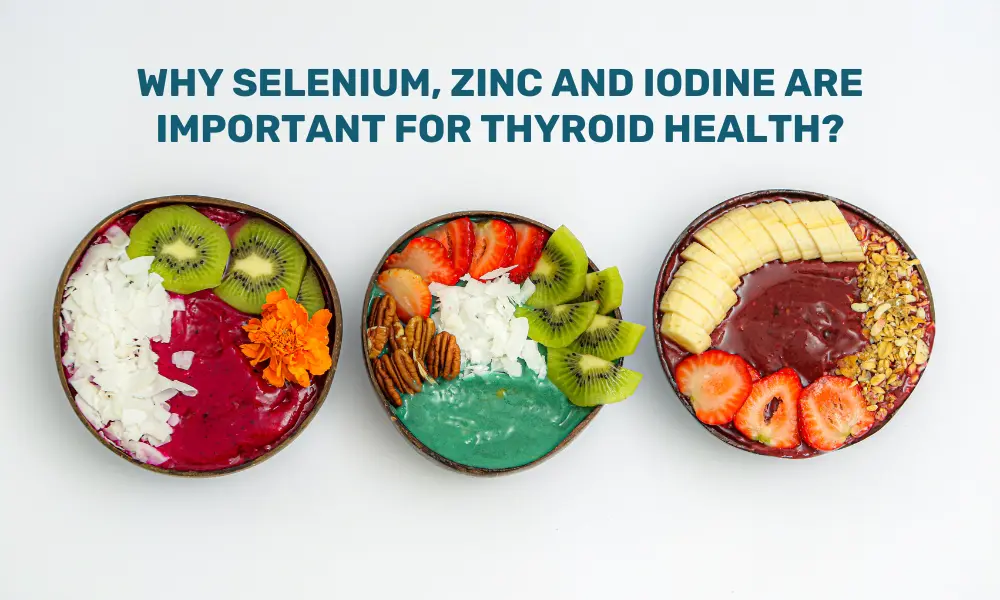Hidden at the base of our neck, the thyroid gland is a small yet crucial organ, responsible for a wide range of functions. Acting as the body’s master regulator of metabolism, energy, pulse rate, temperature, and even fertility, the butterfly-shaped endocrine gland is an absolute necessity to your well-being. When the thyroid is out of balance, nearly every cell and system in the body is affected.
Although it is important, thyroid wellness remains largely misunderstood and underappreciated. Millions of people all over the world quietly endure symptoms of thyroid malfunction — fatigue, weight fluctuation without reason, mood instability, hair loss, infertility — unaware that a micronutrient imbalance might be at the root. While drugs and thyroid hormone substitutes usually take center stage, the key to thyroid wellness is something much easier and more potent: diet.
Our thyroid is not a gland — it is an inner compass for your body. It regulates energy, mood, metabolism, and fertility, and we often overlook the very micronutrients that keep it functioning properly. Three underappreciated heroes — iodine, selenium, and zinc — are the foundation of this nutritional system. These micronutrients, commonly ingested in trace amounts, play a quiet role in the background, dictating the hormone production, conversion, and immune resistance that your thyroid needs to function optimally.
The Hormone Maker: Iodine
No discussion of thyroid health can begin without mentioning iodine. This trace mineral is the chief component of thyroid hormones — triiodothyronine (T3) and thyroxine (T4). Without sufficient iodine, the thyroid is unable to produce these vital hormones, and the body’s balances and functions become imbalanced and dysregulated, resulting in goiter and hypothyroidism.
Iodine is not negotiable. It powers the thyroid’s very function. However, nowadays, many people tend to substitute iodized salt with pink or rock salt, unaware that these so-called healthy options are iodine-free.
In the quest to remain ‘clean’ or ‘natural,’ many do so unwittingly, depriving the body of one of the most essential nutrients. The solution is not about demonizing rock salt or romanticizing iodized salt — it is about striking a balance and maintaining vigilance. One may use rock salt in daily meals, but it is recommended to add iodized salt to chutneys or pickles.
And salt isn’t the only choice. Curd, nuts, seeds, sprouts, and greens are also nature’s gifts of iodine. In functional medicine, the value of iodine extends beyond thyroid function to encompass metabolic well-being, hormonal balance, and the regulation of growth, making it essential not only for thyroid function but also for systemic vitality.
Multi-tasker: Zinc
Zinc plays the quiet multitasker in the thyroid story. It helps in the synthesis and conversion of thyroid hormones, regulates enzyme function, and aid’s immune function — a triad of activity crucial to thyroid equilibrium.
Zinc is in the background, but it’s essential. Eat pumpkin seeds, legumes, and whole grains, and observe the change in energy and equilibrium.
Zinc also impacts the thyroid’s capacity to uptake iodine, earning it the title of synergistic nutrient in thyroid physiology. Beyond the thyroid, zinc’s significance in functional medicine extends to issues with gut health, mood, and reproductive health. Not only can a lack of zinc undermine immune function, it can also compromise the body’s capacity to convert T4 to T3 efficiently — causing subtle hypothyroidism symptoms such as brain fog, fatigue, and cold intolerance.
Thyroid’s Shield: Selenium
If iodine constructs thyroid hormones, selenium guards them from damage. Selenium protects the thyroid against oxidative stress and inflammation.
Selenium is the thyroid’s shield. A handful of Brazil nuts per week, or Indian staples such as lentils and sunflower seeds, will suffice.
At a functional level, selenium is integrated into selenoproteins, which are crucial for hormone metabolism and immune protection. The proteins prevent autoimmune thyroid diseases, such as Hashimoto’s thyroiditis, by dampening chronic inflammation in the gland.
In selenium-deficient people, research has demonstrated increased rates of thyroid disease aggravation. Fortunately, foods rich in selenium are readily available, and it is possible to enhance thyroid resistance through a balanced daily diet.
Should You Consume Supplements?
Although good-quality supplements may help those with dietary limitations, absorption problems, or specific deficiencies, they should never be used as a substitute for food as a source of nutrients. Before adding any supplement to your regimen, particularly iodine, selenium, or zinc, consult a healthcare professional to ensure it is safe for you. Nutrient interactions, medical conditions, and dosing tolerances can differ greatly among individuals.
Thyroid wellness is not about excess. It is about the little, everyday routines that root your body’s hormonal harmony. With a sprinkle of iodized salt or a handful of Brazil nuts, every food decision has the power to rebalance your thyroid and with it, your energy.
Disclaimer: This article is meant for informational purposes only and must not be considered a substitute for professional advice.





